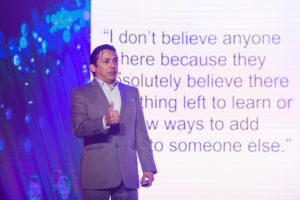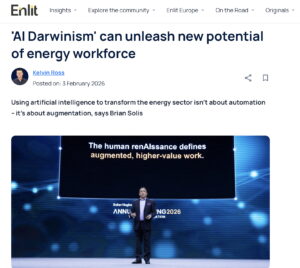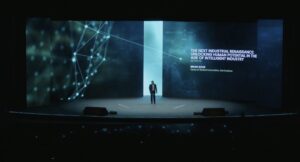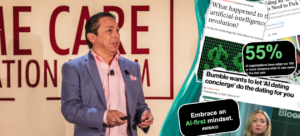In an article by Solis on the Singularity University site called “Ideas are Denied by the Dozen: Why We Need To Celebrate Ideas, Ideation and Innovation to Succeed,” he discusses the unfortunate mindset of incrementalism that gets in the way of truly moving forward towards using new business models.
He starts with a scenario that begins, “I tried to be innovative, but I got stuck in meetings all day. I tried to think creatively, but I had to catch up on email.” This leads to his premise that “However noble or even critical the intention and need, the reality of the situation is that a majority of promising ideas are instantly disregarded, never actually considered.”
Drafting momentum and building upon the past to scale and grow in the future is only one of the pillars of success. Innovation, which can be defined as the pursuit and the creation of new value, is another pillar which creates new momentum and fortifies business models through resilience and relevance.
Solis explains that incrementalism is tied to organizational culture – “and what it fosters and rewards vs. what it limits, stagnates, and censures.” This leads to his premise: “The differences between iteration and innovation are key to the survival and promise of every company. You need a balance of both. Iteration is aiming to endeavor in new efforts that essentially scale or make the same things better. Innovation is doing new things that deliver new value and/or inspire new behaviors and standards. Disruption results when new value supersedes previous value, making old services obsolete.”
Another key paragraph: “Without changing the standards, without normalizing and empowering risk-taking and incentivizing curiosity and creativity, we cannot open new doors. Without giving ourselves or those around us the permission or freedom to move in bold, new directions, the designated sandbox for innovation does nothing to reshape or re-imagine an uncharted future. Instead, the schematics and the cultural dynamics of the box directly shape the results produced within it. They become the box—and we never left, even though we convinced ourselves we were thinking outside of it.”
Solis believes I’t’s simply a matter of innovate or be out-innovated. Disrupt or be disrupted. He writes, “Disruption isn’t just a gift given to you by disruptors, or a curse imposed on you by competitors. It can also be self-inflicted and often is. Stagnation and incrementalism can lead to mediocrity, which only accelerates irrelevance and eventual disruption. When your most valuable customers and employees feel, see, taste, touch, or experience innovation and new value, chances are, they’re not going to go backward. They’re going to choose a new value and meaningful experiences no matter how much momentum you’ve built over the years.”
Another key point: “To survive disruption, to deliver new value, and to compete for the future, legacy organizations and incumbents need their dreamers, too.”
Read the entire article here: https://su.org/blog/why-we-need-to-celebrate-ideas-ideation-and-innovation-to-succeed/






Leave a Reply